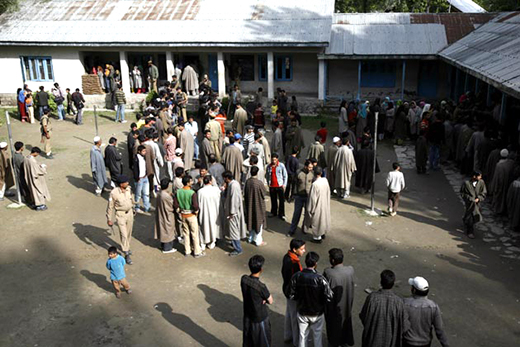SRINAGAR: A coalition comprising around twelve Gujjar Bakerwal organisations, under the banner of the All J&K Gujjar Bakarwals Coordination Committee, has made an appeal to the Government, where they have called for the reservation of seven wards designated for Scheduled Tribes (STs) in the upcoming Jammu Municipal Corporation (JMC) elections.
During a press conference held at the Press Club, the convener, co-convener, and spokespersons, namely Anwar Chowdhary, Bashir Ahmed Noon, Mushtaq Ahmed, Aslam Khan, Corporator Sobat Ali, Ch Hussain Ali Wafa, and prominent Dhodi Gujjar leaders Syed Ali and Jameel Choudhary, expressed their strong disapproval of the political reservation allocated to STs in Jammu & Kashmir, deeming it a significant mockery.
They emphasised that in the recent JMC election, only two out of the 75 wards were designated for STs, contrary to the requirement of seven wards as stipulated by the rules.
Furthermore, they pointed out that wards primarily inhabited by STs had been reserved for Scheduled Castes (SC), specifically ward number 74, where the SC population constituted just 3 percent. They asserted that such a decision not only undermined the purpose of ST reservation but also seemed to be a deliberate attempt by the authorities to sow divisions between ST and SC communities.
The leaders also criticised the government’s assertions regarding the rights of their community, particularly concerning the Forest Rights Act and political reservation. They alleged that STs were being denied their rights, even in fundamental development projects, and were neglected in essential services such as water, electricity, roads, pathways, education, and healthcare.
Additionally, they raised concerns about the security of their community members, who lived under constant threat from anti-social elements, forcing them to leave their homes.
The Gujjar-Bakkerwal representatives called for the establishment of two Gujjar Bakkerwals Colonies in both provinces of J&K. They argued that this would enable them to follow the “PMAY” (Preservation of Tribal Culture) model and sustain their traditional, natural, and time-honoured professions while safeguarding their cultural heritage, in accordance with directives from the Supreme Court to protect and preserve the culture of Scheduled Tribes.















